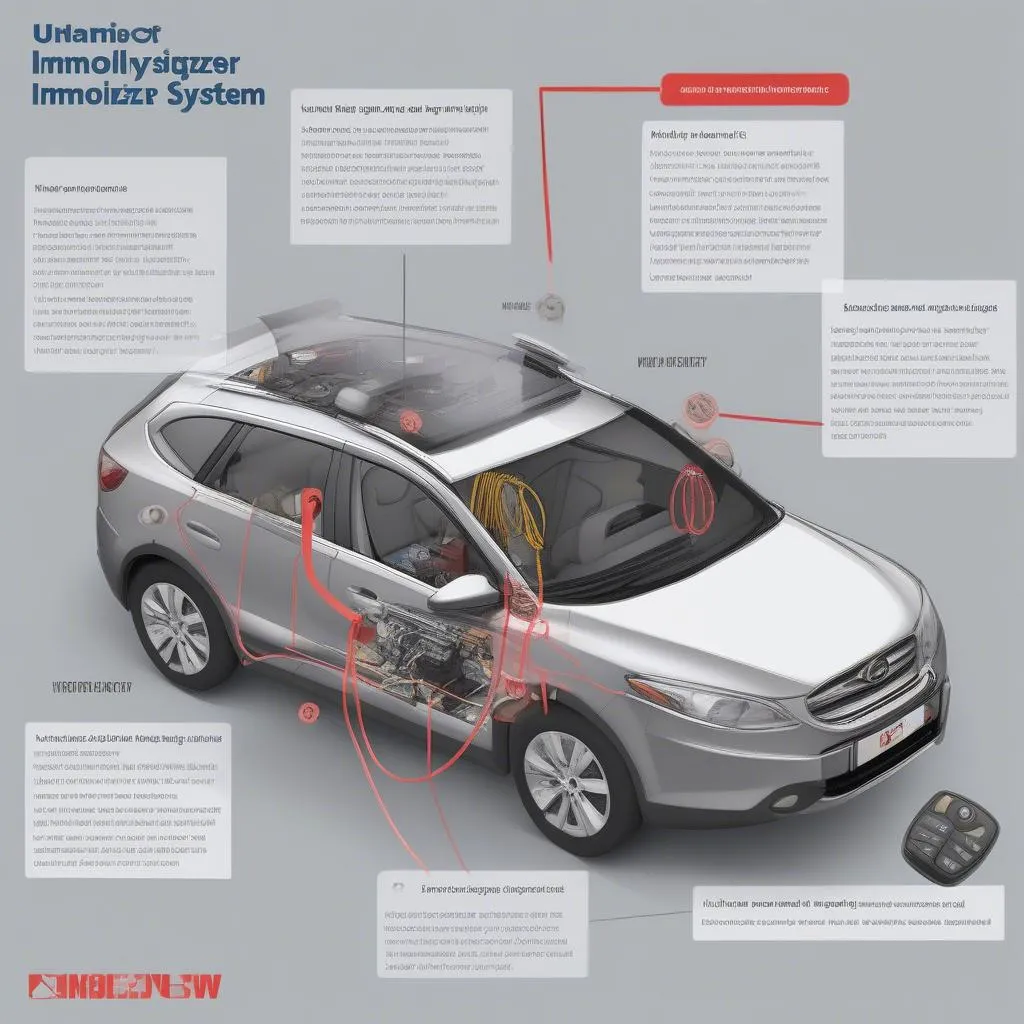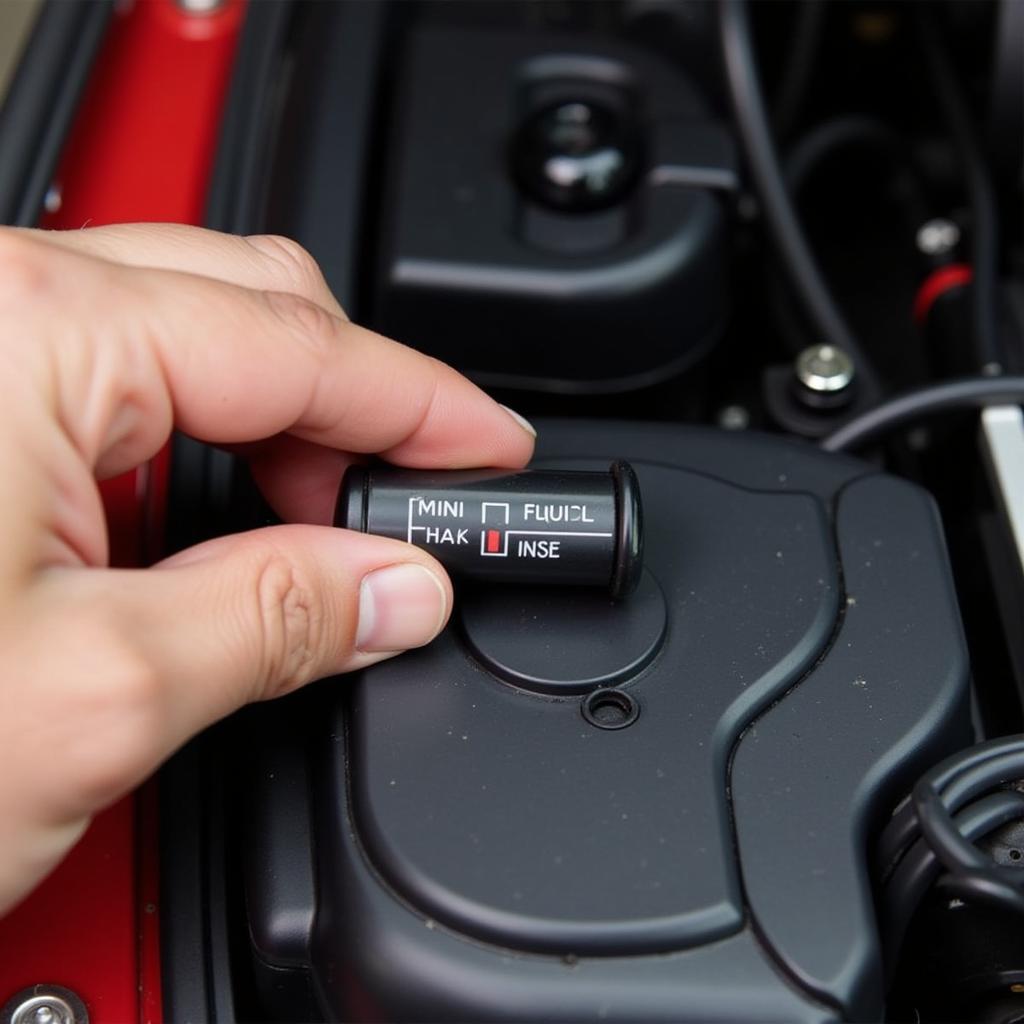In today’s world, car theft is an unfortunate reality. Thankfully, vehicle manufacturers have stepped up their game with sophisticated anti-theft systems designed to deter even the most determined thieves. But how do these systems actually work to protect your car? Let’s demystify the world of car anti-theft technology.
Understanding the Basics: Immobilizers and Alarms
At the heart of modern car anti-theft systems lie two key components:
1. Immobilizers: This technology prevents the engine from starting without the presence of the correct key. Most cars today use transponder keys that contain a tiny microchip. When you insert your key into the ignition or bring it near the start button, the immobilizer system reads the chip’s unique code. If the code matches, the vehicle’s computer allows the engine to start. If not, your car stays put.
2. Alarms: As the name suggests, car alarms are designed to scare off would-be thieves with loud, attention-grabbing sirens. They work by utilizing sensors placed around the vehicle that detect things like:
- Impact: Someone trying to break a window or force a door open.
- Motion: Movement inside the car when it’s supposed to be locked.
- Changes in vehicle angle: This might indicate someone is trying to tow or jack up your car.
Advanced Anti-Theft Features: Going the Extra Mile
Many vehicles go beyond the basics with advanced features that offer an even higher level of security:
- GPS Tracking: This technology allows you and/or law enforcement to track your car’s location in real-time if it’s stolen.
- Remote Shutdown: Some systems enable you or authorities to remotely shut down the engine, bringing the vehicle to a stop.
- Keyless Entry Codes: Instead of traditional keys, these systems use unique numerical codes entered on a keypad on the car’s door or through a smartphone app.
- Biometric Authentication: While still emerging, some high-end cars utilize fingerprint or facial recognition to grant access and starting privileges.
Troubleshooting Anti-Theft Issues: When Things Go Wrong
While anti-theft systems are there to protect you, they can sometimes malfunction, leading to frustrating situations like being locked out of your own car. Common issues include:
- Dead key fob battery: This can prevent the immobilizer from recognizing your key.
- Faulty sensors: A malfunctioning sensor can trigger a false alarm or prevent the car from starting.
- Electrical problems: Issues with the car’s wiring or battery can disrupt the anti-theft system.
If you suspect your car’s anti-theft system is acting up, it’s crucial to get it checked out by a qualified mechanic or an automotive electrician experienced in car diagnostics and programming. You might even need specialized software to pinpoint and address the issue.
For instance, “How do I know if my car’s immobilizer is malfunctioning?” is a question we often get. Symptoms can range from your car not starting consistently to the immobilizer warning light staying on.
Cardiagtech: Your Partner in Automotive Security
Understanding how your car’s anti-theft system works empowers you to make informed decisions about your vehicle’s security. And when those unexpected problems arise, remember that resources like Cardiagtech are available to provide expert advice and cutting-edge diagnostic solutions.
 car immobilizer system diagram
car immobilizer system diagram
 modern car alarm with GPS tracking
modern car alarm with GPS tracking
Frequently Asked Questions:
Q: Can I install an aftermarket anti-theft system?
A: Yes, several aftermarket options are available, from basic steering wheel locks to sophisticated GPS tracking systems.
Q: Can I disable my car alarm temporarily?
A: The method varies depending on the make and model, but usually, you can disable it by using the key fob, a switch inside the car, or a combination of actions. However, consult your owner’s manual for specific instructions.
Q: Can a dead car battery trigger the alarm?
A: Yes, a sudden drop in voltage caused by a dying battery can sometimes set off the alarm.
Remember, at CARDIAGTECH, we offer a wide range of automotive diagnostic tools and services to keep your car secure and running smoothly. Contact us today to learn more!

